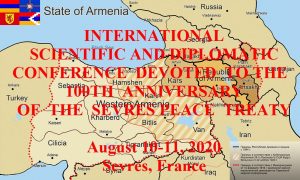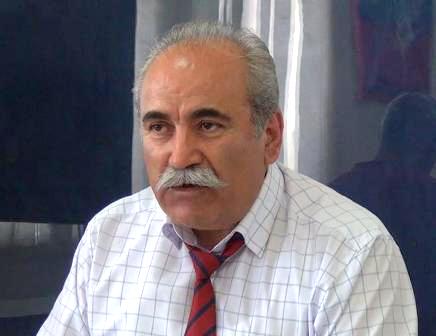 From 10 to 11 August 2020, in the suburb of the French capital of Paris, in the city of Sevres, where exactly 100 years ago, in 1920, the Sevres Peace Treaty had been signed as one of the most important treaties of the Versailles system, the system whose establishment marked the end of the World War I, the International Scientific and Diplomatic Conference dedicated to the 100th anniversary of the Sevres Peace Treaty took place.
From 10 to 11 August 2020, in the suburb of the French capital of Paris, in the city of Sevres, where exactly 100 years ago, in 1920, the Sevres Peace Treaty had been signed as one of the most important treaties of the Versailles system, the system whose establishment marked the end of the World War I, the International Scientific and Diplomatic Conference dedicated to the 100th anniversary of the Sevres Peace Treaty took place.
The full name of the International Scientific and Diplomatic Conference is:
«100th Anniversary of the Sevres Peace Treaty and Ways of Solving the Armenian Issue and the Middle East Crisis: Historical and Legal Analysis and Contemporary Problems.
International community geopolitics in the context of the implementation of the provisions of the Treaty of Sevres – as a path to sustainable, just and lasting peace and true cooperation between the states and nations of the Greater Middle East, Mediterranean and North Africa».
The initiators and organizers of the International Conference were the Government and the National Assembly (Parliament) of Western Armenia and the International Independent Legal Expert Center for Reparations and Restitutions.
Within the framework of the scientific and diplomatic conference dedicated to the 100th anniversary of the Sevres Peace Treaty, the following issues were discussed:
- Historical significance and historical and legal analysis of the Sevres Peace Treaty, as one of the most important treaties of the Versailles system.
- Lessons from the Sevres Peace Treaty and its consequences for the modern world of civilization.
- Geopolitics of the international community in the implementation of the provisions of the Sevres Peace Treaty of 1920.
- Legal basis and the possibility of ratifying the Sevres Peace Treaty of 1920.
- The need to convene a «Sevres-2» peace conference and sign a legally binding treaty «Sevres-2» and its strict implementation – as a path to a stable, lasting and just peace, and true cooperation between states and peoples of the Greater Middle East, Mediterranean and North Africa.
- Ways of reviving the statehood of Western Armenia and the solution of the Armenian issue.
- Western Armenia and neighboring states: historical and legal analysis and contemporary problems.
- Middle East Crisis: Geopolitics of the International Community in the Greater Middle East and neighboring
- The Genocide of the Armenian people in 1894-1923 on the territory of Western Armenia, Cilicia, the Ottoman Empire, Eastern Armenia, Artsakh and Azerbaijan, as well as the Assyrians, Pontic Greeks and other indigenous nations on the territory of the Ottoman Empire: international recognition, condemnation and compensation for damage.
- Modern problems of indigenous peoples of Western Armenia and protection of their rights.
- The problem of preserving the spiritual and cultural heritage of the Armenian and other indigenous peoples of the Greater Middle East in peacetime, from hostilities and terrorism.







